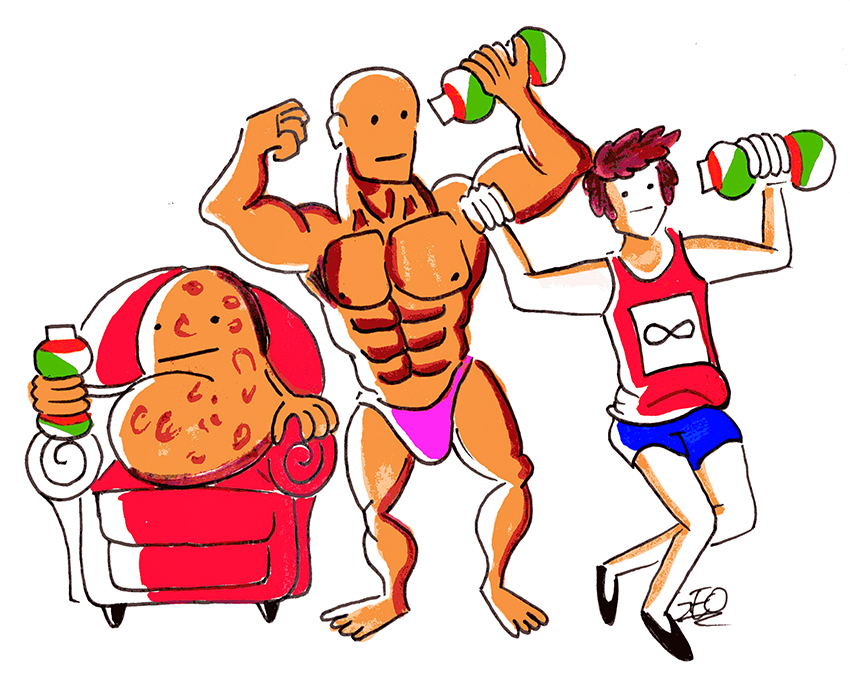It’s really hard to stay hydrated through the long Texas summer. Will drinking sports drinks be better for me than drinking good old water? What do electrolytes really do? – Hot & Thirsty
Even though the calendar says it’s fall, the temperature here in Texas insists otherwise. You’re already ahead of the game by trying to make sure your body stays hydrated.
But what’s so electrifying about electrolytes? Go to any grocery store, and you’re bombarded with sporty bottles filled with colorful liquids and boasting high electrolyte content.
Simply put, electrolytes are chemicals in your body with an electric charge. Sodium, potassium, chloride and calcium are just a few examples. Nerves and muscles rely on electrolyte movement to function properly. For example, if you decide to move your arm, your brain relays the signal to your muscles by changing the concentration of calcium ions in your nerve cells. The acidity and volume of your blood are also affected by electrolyte count and composition.
Even though your kidneys and hormones work hard to keep all of these electrolyte levels in check, there are cases where imbalances occur. Don’t deny it, we all have tasted our sweat. Salty, right? This is because, along with water, you are also losing some electrolytes.
Workouts that turn into sweat sessions, severe dehydration and stomach bugs can all cause you to lose lots of fluids and lead to imbalances in electrolytes.
Out-of-whack electrolyte levels (both too low and too high) can cause a number of problems, depending on the type of electrolyte that’s off-balance and the severity. Symptoms for electrolyte imbalance can range from weakness, fatigue and muscle spasms to even confusion and irregular heartbeat in more intense cases.
If you’re just trying to rehydrate, water is always the best option. Staying hydrated aids in maintaining a normal body temperature, helps carry nutrients and oxygen to cells, removes the body’s waste products and keeps muscles working at their best.
However, if you have been working out for more than an hour, sports drinks could come in handy. According to the Academy of Nutrition and Dietetics, downing that colorful drink after a few hours of exercise is a quick and efficient way to replenish your electrolyte reserves.
After short, less-than-60-minute workouts, though, lost electrolytes can be replaced by foods in your everyday diet — another reason to eat fruits and veggies!
If you’re still trying to decide between water and a sports drink, take a look at the nutrition facts label. A 12-ounce serving of a sports beverage can contain over 30 grams of sugar. That’s more than seven teaspoons! Lots of sugar equals lots of calories — kind of ironic for a “healthy” sports drink. Additionally, most average-sized sports drink bottles (28 fluid ounces) contain two and a half servings, so you’ll need to multiply the nutrition fact stats by two and a half if you down the whole thing.
So here’s my advice, Hot & Thirsty: Unless you’re exercising for over an hour, profusely sweating or losing fluids due to illness, skip the sports drink for H2O. With a balanced diet, electrolytes can stay in check — water always wins.















